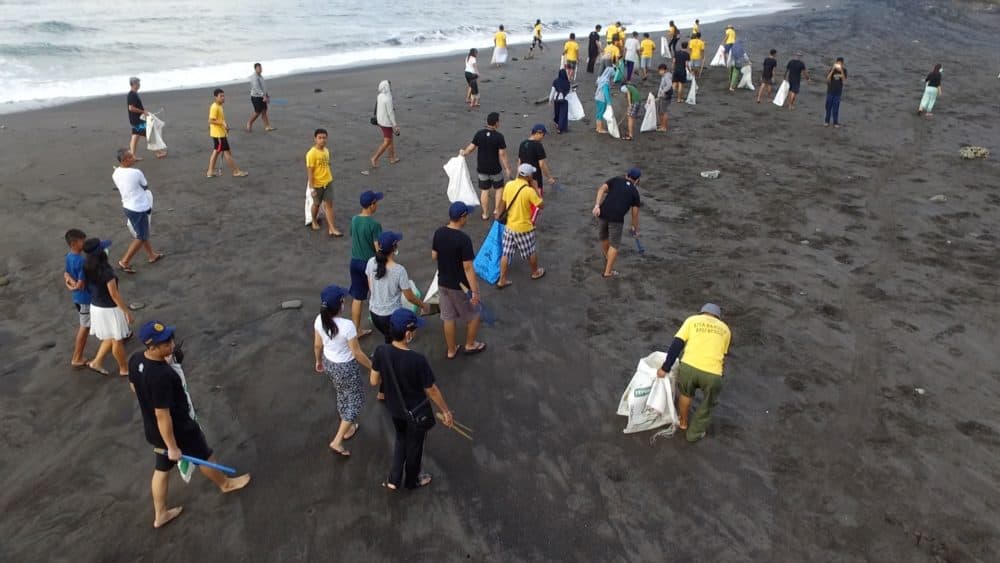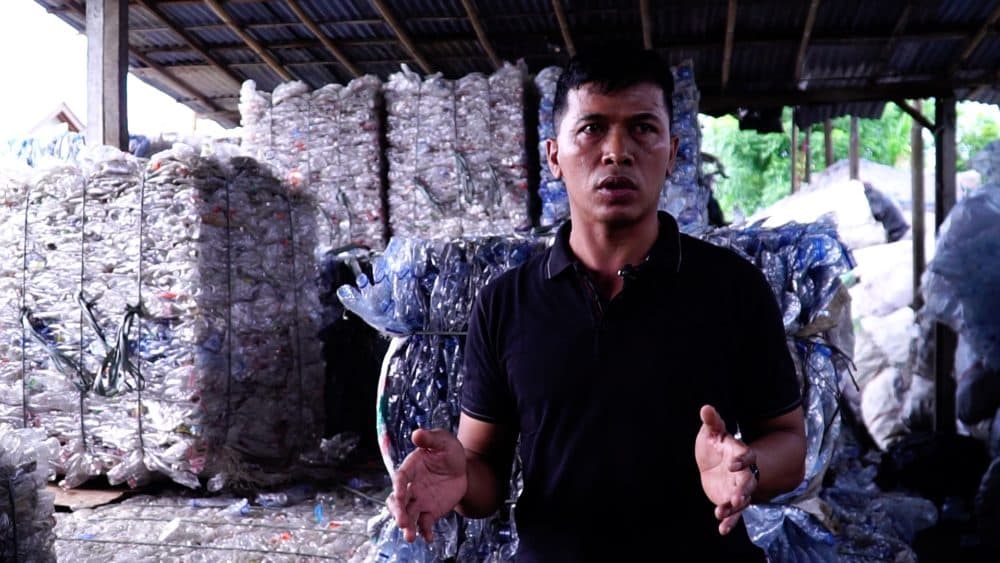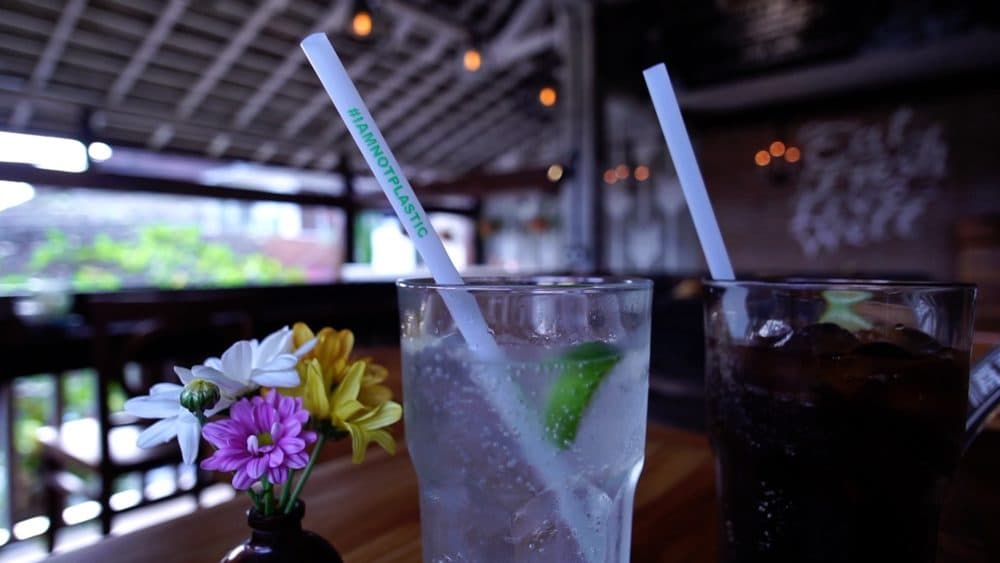Advertisement
Can Bioplastics Turn The Tide On Indonesia's Waste Problem?
Resume
It's early morning on Saba Beach, on Bali's east coast. Around 50 people in yellow "I am a Trash Hero" T-shirts comb the coastline. Organizing them is Wayan Aksara, of Trash Hero Indonesia, a community group with 38 chapters across the island nation.
In one year alone, the volunteers have collected 15 metric tons of plastic trash. Aksara knows, though, that picking up trash will not solve the problem.
"The more important is that we educate the people. How they manage their trash. How to stop plastic," he says.
A video of a British diver swimming through a soup of plastic bags and food wrappers off the coast of Bali, Indonesia, went viral earlier this year, sparking anger and calls for action to tackle ocean pollution.
Indonesia is the world's second largest source of marine plastic waste, after China. The nation currently uses a whopping 9.8 billion plastic bags per year, according to the country's director general of waste management. Many of these bags end up in rivers and oceans.
Record tourism in Bali is only compounding the problem. Indonesia has committed to cut its plastic waste by 70 percent within the next seven years by developing new industries that use biodegradable materials, as well as public education and a tax on plastic bags.
Once all of the volunteers leave, Akasar heads over to see his friend Nyoman Adi Artana at his plastic-bottle packing plant, where the Trash Heroes send the empty water bottles for recycling. Adi Artana uses a hydraulic press to compact 5,000 bottles into a roughly 1 cubic meter bale weighing around 300 pounds. The bales are then loaded onto trucks to be recycled in Java.
On an average day, they load three trucks. But there is not a lot of money to make in plastic recycling: For every bale, Artana makes approximately $4.

"Plastic is not a sexy business," says Adi Artana. "I chose plastic because I know people aren't willing. If I want to make more money doing the rubbish, you have to choose metal."
Indonesia’s government says it will spend $1 billion to reduce plastic pollution over the coming decade. Adi Artana wants to be a role model and hopes to see locals practice better recycling.
"Everybody knows that plastic cannot be recycled by the earth,” he says. "If it stays in the earth, land, it can stay for more than 100 years, so we have to take it and bring it somewhere and recycle, instead of letting it stay in the earth and land."
A company in Bali called Avani Eco is trying to make a difference at the production end of the equation, by making products using bioplastics — materials made from plants or bacterial processes. Bioplastics are biodegradable as well as sustainable. Seaweed is one of the most promising materials, another is the root vegetable cassava.
Kevin Kumala, co-founder and CEO of Avani Eco, is leading the way in converting cassava into plastic bags and straws. His company also turns sugar cane fiber into take-away containers.
"Here in Indonesia we are growing about 25.2 million tons of cassava annually," Kumala says. "It means that when it comes to the commodity price, cassava is the most economical commodity available in the country."
The Avani Eco Hub was founded in 2014, and now has 95 employees and 20 machines, giving them the capability to produce up to 40 metric tons of cassava bags per month. Avani's bioplastic products use mostly low value, inedible or what would otherwise be discarded byproducts from the food industry. There are some concerns, though, about pressures on land use if crops are grown to feed into the bioplastics supply chain.
At the Bali factory, they are producing their "I'm Not Plastic" cassava bags. The cost of the cassava bags is 50 percent more than regular plastic bags, but Kumala says they are still in the early stages of scaling up their output — the costs will go down with increased demand and better production techniques.

With Avani Eco and over 100 other bio-based companies around the world competing in this growing market, Kumala believes Indonesia can reach those ambitious goals it has set for itself.
"I truly believe, if you look 5-10 years down the line," says Kumala. "I really believe the utilization of plastic is going to be much, much smaller then what it is today. I think it will go down 70-80 percent 10 years down the road."
As more cities and countries reduce, and even ban the use of some plastics, including bags and straws, the bioplastic industry's biggest challenge may one day be keeping up with demand.
This segment aired on October 24, 2018.